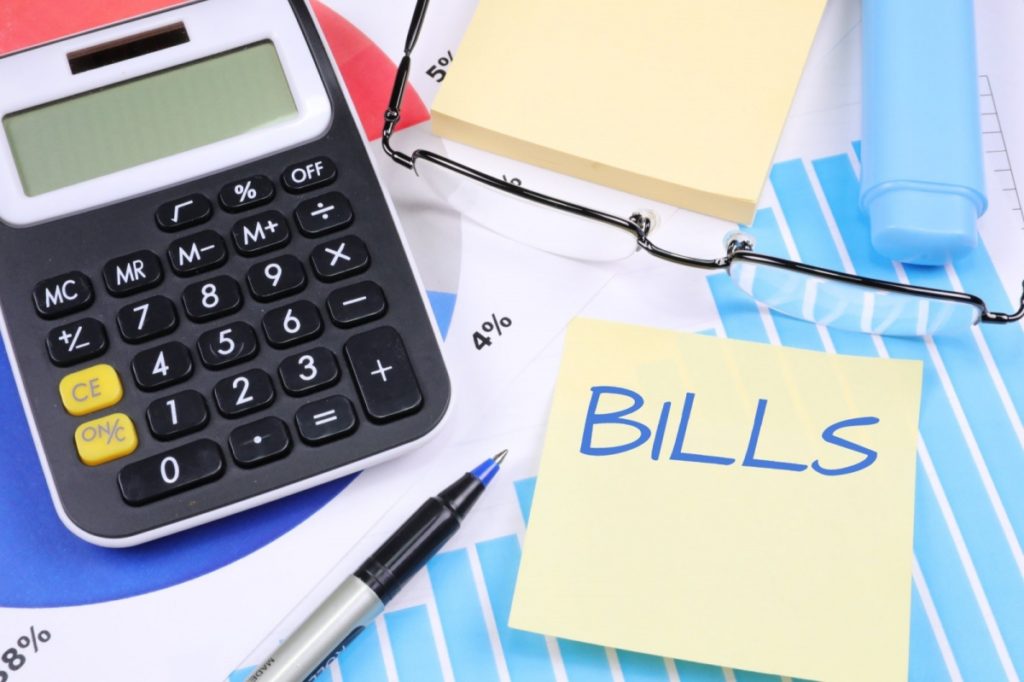Energy reports have confirmed that America is leading globally in energy wastage with an average energy efficiency of about 42%.
Part of this energy is wasted in the form of electrical power in commercial facilities and the manufacturing sector (approximately 20%).
These shocking figures are a testament to the fact that energy management should be at the forefront of any company that wants to optimize its profits and succeed in business.
As a company grows, managing costs becomes an increasingly complex and important task. One cost area that often receives less attention but has a substantial impact on the bottom line is utility bills. Water, electricity, and gas, among others, are essential for daily operations but can lead to huge expenditures if not managed properly.
This guide aims to provide effective strategies on how to manage your company’s utility bills, helping you optimize usage, reduce costs, and improve your overall operational efficiency.
What Are Utility Bills?
Utility bills are monthly invoices sent by service providers for the consumption of utilities such as electricity, water, gas, internet, and waste management services. These utilities are essential for the operation of any business, providing the necessary resources for various functions and activities.
From lighting up office spaces to powering equipment, facilitating communication, providing sanitation, and managing waste, these utilities contribute significantly to the operational costs of a company. It’s important to note that while utility bills are necessary expenses, they also represent an area where significant cost savings can be made through effective management.

How To Manage Your Energy (Electricity) Bill Better
- Conduct Energy Audits: Start by understanding where your energy consumption lies. Regular energy audits will help identify areas that consume the most electricity. This could be due to heating, cooling, lighting, or specific equipment. Once you have these insights, you can make targeted adjustments to improve efficiency and reduce costs.
- Invest in Energy-Efficient Equipment: Replacing older appliances with modern, energy-efficient ones can lead to significant reductions in electricity usage. Look for devices with high energy efficiency ratings. Though there may be an initial cost, the long-term savings are worthwhile.
- Optimize Lighting: Switching to energy-efficient lighting, such as LED bulbs, can drastically cut down your electricity consumption. Also, consider incorporating more natural light into your office design, reducing the need for artificial lighting.
- Implement Energy Management Software: Specialized software can provide real-time monitoring and comprehensive analysis of your energy usage. These applications offer valuable insights, help identify wasteful practices, and suggest measures to reduce energy consumption.
- Automate with Smart Devices: Smart thermostats and lighting systems can adjust energy use based on occupancy and time of day. Using these devices can significantly cut down on unnecessary energy usage.
How To Manage Your Water Bill Better
- Install Water-Efficient Fixtures: Utilize water-efficient fixtures like low-flow toilets and faucets to conserve water. These fixtures are designed to provide adequate functionality while minimizing water wastage.
- Regularly Check for Leaks: Small leaks can result in significant water wastage over time. Regular inspections and prompt repairs can keep this in check.
- Use Water Management Systems: Water management systems can analyze your company’s water usage patterns and identify areas where water is being wasted. By understanding these patterns, you can devise strategies to improve water efficiency.
- Reuse Water: Where appropriate and legal, consider reusing greywater (waste water from sinks, showers, etc.) for activities like flushing toilets or watering plants.
- Install Rainwater Harvesting Systems: Collecting rainwater can provide a free and sustainable source of water for tasks like cleaning and irrigation.
How To Manage Your Gas (Heating) Bill Better
- Regular Maintenance of Heating Systems: Regular maintenance of your heating systems is essential to ensure they operate at peak efficiency. A poorly maintained system will consume more gas and increase your utility bill.
- Invest in Energy-Efficient Heating Systems: Opt for high-efficiency heating systems that consume less gas and are more reliable than their less efficient counterparts.
- Implement Proper Insulation: A well-insulated building requires less energy to heat. Investing in quality insulation will reduce the need for heating and, consequently, gas consumption.
- Weatherproof Your Building: Seal off any leaks or drafts in your building. This can keep warm air in during the winter and out during the summer, reducing heating and cooling costs.
- Use Energy-Efficient Windows: Double-glazed windows can help insulate your building and reduce heating costs.

How To Manage Your Internet/Telecom Bill Better
- Evaluate your Needs: Make sure you’re not paying for internet or telecom services you don’t need. Regularly review your usage and downgrade or upgrade your plans as needed.
- Bundle Services: Many providers offer bundled services, which can be significantly cheaper than purchasing each service separately.
- Negotiate with Providers: If you feel you’re being overcharged, don’t hesitate to negotiate with your providers. Often, they’ll be willing to offer discounts to retain a customer.
- Use Free Communication Tools: Where possible, utilize free communication tools like email or instant messaging, reducing the need for more expensive communication channels.
- Audit Your Bills: Regularly review your bills to ensure there are no errors or unnecessary charges.
How To Manage Your Waste Bill Better
- Implement Recycling Programs: Encouraging recycling can not only reduce your company’s environmental impact but also cut down waste removal costs.
- Conduct Waste Audits: Understand what’s in your waste. By identifying opportunities to reduce, reuse, or recycle, you can decrease the volume of waste and thus the cost associated with its removal.
- Train Employees: Employees play a critical role in waste management. Conduct training sessions to educate them about the importance of minimizing waste and how they can contribute. Creating a culture of sustainability can significantly reduce waste generation.
- Donate or Sell Unwanted Items: Instead of throwing away unwanted office furniture or equipment, consider selling or donating them. This can reduce waste removal costs.
- Go Digital: Minimize paper usage by digitizing files and encouraging online communication.
Conclusion
Managing utility bills is a critical component of cost control in any business. With a proactive and strategic approach to energy, water, gas, internet/telecom, and waste management, you can make substantial savings. The key lies not just in reducing usage but optimizing it to achieve more with less.
The strategies outlined in this guide provide a roadmap to efficient utility management that’s good for both your bottom line and the environment. By implementing these measures, you can make a significant stride towards sustainability and cost-efficiency.
